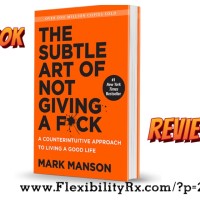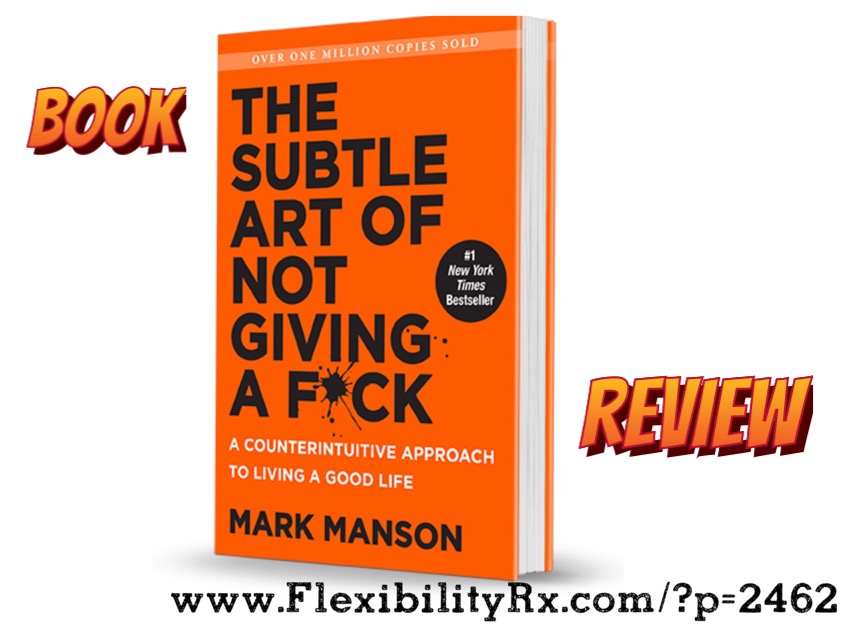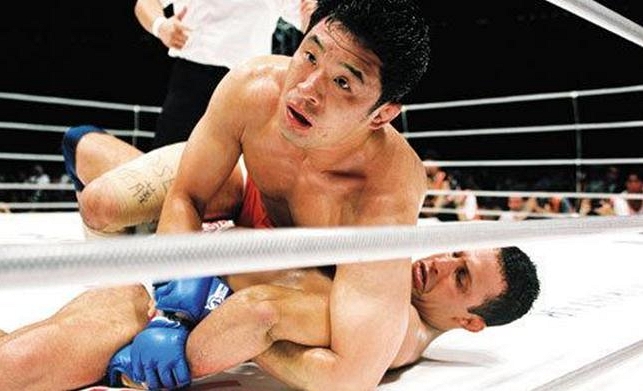
Monday Mindset: The Subtle Art of Not Giving a F*ck
I wasn’t sure what to expect going into this book. This turned out to be a very thought-provoking book and practical approach to outlining and narrowing one’s focus.
“There is a subtle art to not giving a F*ck. What I’m talking about here is essentially learning how to focus and prioritize your thoughts effectively – how to pick and choose what matters to you and what does not matter to you based on finely honed personal values. This is incredibly difficult. It takes a lifetime of practice and discipline to achieve. And you will regularly fail. But it is perhaps the most worthy struggle one can undertake in one’s life. It is perhaps the only struggle in one’s life.”
I have outlined various concepts into the following sections…
#1: CHOOSING WHAT TO CARE ABOUT AND WHAT NOT TO CARE ABOUT
“When you give too many f*cks – when you give a f*ck about everyone and everything – you will feel that you’re perpetually entitled to be comfortable and happy at all times, that everything is supposed to be just exactly the f*cking way you want it to be. This is a sickness. And it will eat you alive. You will see every adversity as an injustice, every challenge as a failure, every inconvenience as a personal slight, every disagreement as a betrayal.”
“Say F*ck it not to everything in life, but rather to everything unimportant in life. Reserve your f*cks for what truly matters.”
Mark points out that negative emotions are a call to action. The required action of handling something we care about will reward us with positive emotions for taking proper action.
#2: WHAT PAIN DO YOU WANT IN YOU LIFE? (WHAT SACRIFICES WILL YOU ACCEPT?)
This question that Mark voiced was my favorite part of the book. His insistence of an individual asking themselves what they are willing to struggle for is a different way of looking at a job, career, hobby, relationship, or subject of learning.
After being drawn to someone or something we have to ask ourselves what we are willing to tolerate to create an honest relationship with that individual or goal.
“Real, serious, lifelong fulfillment and meaning have to be earned through the choosing and managing of our struggles. Who you are is defined by what you’re willing to struggle for.”
Renzo Gracie’s Fighting Spirit Against Warrior Kazushi Sakuraba
“People a lot of times see fighting as an ugly thing. In reality, I see fighting in everything. Everything is fighting – doesn’t matter what it is. You wake up in the morning to get out of bed is a fight – believe it. So, fighting is actually the best thing a man can have in his soul.” – Bjj Fighter Renzo Gracie
Renzo on 60 Minutes: https://youtu.be/jAByis4-Q7s
#3: NOT MAKING A CHOICE CREATES A SENSE OF ENTITLEMENT
Entitlement. While this mindset is generally thought of as someone thinking they are better than someone or better at something than someone else and deserve more – there is a flip side to entitlement…
“Construing everything in life so as to make yourself out to be constantly victimized requires just as much selfishness as the opposite.”
In other words when things aren’t going someone’s way they feel that the world owes them something. Realizing this limiting mindset is liberating in that you have to realize that the power lies in your own actions and determination – not a force outside of your control.
“Often, it’s this realization – that you and your problems are actually NOT privileged in their severity or pain – that is the first and most important step toward solving them.”
“Obsession with improvement stems from an unerring belief that they are, in fact, not that great at all. It’s anti-entitlement.”
“If you want to change how you see your problems, you have to change what you value and/or how you measure failure/success.”
#4: DECIDING ON OUR VALUES, METRICS, INTERPRETATIONS, AND ACTIONS
“When we have poor values – that is, poor standards we set for ourselves and others – we are essentially giving f*cks about the things that don’t matter, things that in fact make our life worse.”
Mark talks about the unavoidable fact that we have to choose how we INTREPRET and RESPOND to our experiences.
“Whether we like it or not, we are always taking an active role in what’s occurring to and within us. The point is, we are always choosing, whether we recognize it or not. Always. The real question is, What are we choosing to give a f*ck about? What values are we choosing to base our actions on? What metrics are we choosing to use to measure our life? And are those good choices – good values and good metrics?”
“A lot of people hesitate to take responsibility for their problems because they believe that to be responsible for your problems is to also be at fault for your problems. Responsibility and fault often appear together in our culture. But they’re not the same thing. There are also problems that we aren’t at fault for, yet we are still responsible for them. We are responsible for experiences that aren’t our fault all the time. This is part of life.”
“Fault is past tense. Responsibility is present tense. Fault results from choices that have already been made. Responsibility results from the choices you’re currently making, every second of every day.”
It is our responsibility to choose what to care about or what NOT to give a f*ck about. This reminds me of Tim Ferris’s concept of the NOT to DO list where we have to decide what things are pulling us away from our values and goals.
At the 2012 I Love Marketing Conference a strong point was made to, “Eliminate everything from your life that is not EXCELLENT.” We have to care about the things that distract us and distance ourselves from them.
This to me is what the author is driving home. We have to choose what to care about and what not to care about. If we take a stand in separating the two out in reference to our values we can set appropriate metrics to line us up with our goals.
“You are already choosing, in every moment of every day, what to give a fuck about, so change is as simple as choosing to give a f*ck about something else. It really is that simple. It’s just not easy.”
While much of this material may not seem new – it is the personal questions that come from sitting down with a book like this that are so valuable. I highly recommend this book.
– Kevin J. Kula, “The Flexibility Coach”


Leave A Reply (No comments so far)
You must be logged in to post a comment.
No comments yet